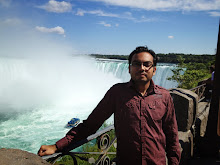Population
According to the 2002 Census the population of the city was 10,382,754, however, this figure only takes into account legal residents. Latest estimate—10,524,400 (1 June 2009).[99] Population of Moscow with Moscow region is 17,001,292 (as of the 2002 Census).
For centuries Moscow has been the largest city in Russia and/or the Soviet Union, however the collapse of the latter has led to a decline in Siberian as well as many other Russian cities, so that Moscow's growth and dominance over Saint Petersburg and the rest of the nation has become even more pronounced.[citation needed]
It is a highly ethnically homogeneous city, with 86,4% being Russian (as of the 2002 Census).
Due to a low birth rate[100] and high mortality rate, the population of Russia has been declining by approximately 700,000 persons per year[101] since the fall of the Soviet Union. In 2003, the number of deaths exceeded the number of births by approximately 49,400. Whilst the birth rate has risen in more recent years, the average age of Moscow's population continues to increase.
Substantial numbers of internal migrants mean that Moscow's population is still increasing, whereas the population of many other Russian cities is in decline. Migrants are attracted by Moscow's strong economy which contrasts sharply with the stagnation in many other parts of Russia. In order to help regulate population growth, Moscow has an internal passport system that prohibits non-residents from staying in the capital for more than ninety days without registration.[citation needed]
Moscow is a very unfriendly place for gays and lesbians to be themselves. The city government does not permit gays to hold “gay pride parades,” gay couples cannot show affections openly without fear of harm, and the Mayor of Moscow, Yury Luzhkov is thought be to be “one of the most homophobic politicians” in Russia. [102] [103]
Religion
Christianity is the predominant religion in the city, of which the Russian Orthodox Church is the most popular by virtue of being the country’s traditional religion and is deemed a part of Russia's "historical heritage" in a law passed in 1997.[104] Moscow is also Russia's capital of Orthodox Christianity. The Patriarch of Moscow serves as the head of the church and resides in the Danilov Monastery. Moscow was called "city of 1600 churches" (ru: "город сорока сороков церквей"—city of forty forties churches) prior to 1917. In 1918 Russia became secular state and religion lost its position in society. After disintegration of Soviet Union in 1991 many of the destroyed churches have been restored and traditional religions are gaining popularity.
In Moscow there are other religious societies besides Orthodoxy: Muslims (Moscow is home to 1.5 million people of Muslim backgrounds or more than 15%, many from countries previously a part of the Soviet Union), Protestants, Old-believers, Single-believers, Judaism and various cult buildings of those religions.[105]
The New Age movement has also led to emergence of some "non-traditional" religions in large cities of Russia. Polls indicate that around 1% of population of Moscow and St. Petersburg self-identify as Buddhists. Many of these are Slavic and have no ethnic connection to Buddhism.

